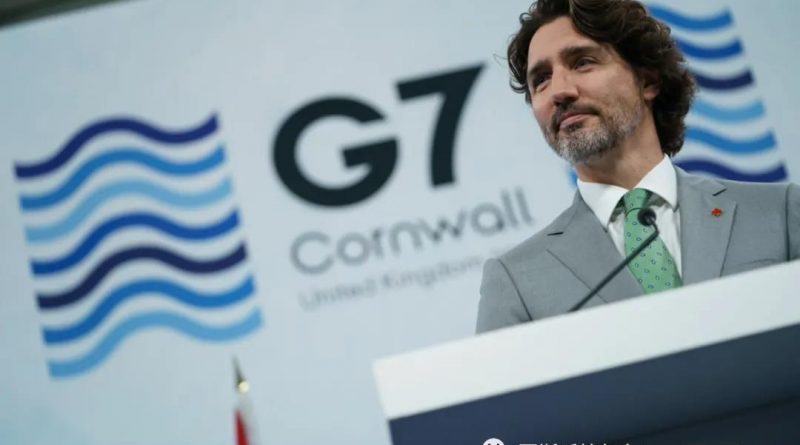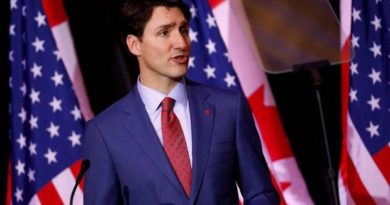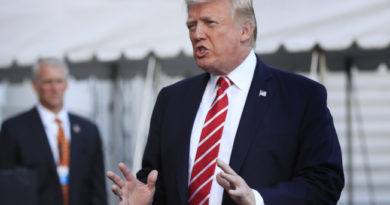特鲁多总理结束出席富有成效的G7领导人英国峰会
杜鲁多总理结束富有成效的加拿大-欧盟峰会
Prime Minister concludes productive Canada-European Union Summit
2021年6月15日 比利时布鲁塞尔 总理办公室

贾斯廷•特鲁多(Justin Trudeau)总理今天结束了出席在英国卡比斯湾(Carbis Bay)举行的七国集团(G7)领导人峰会的活动。
在峰会期间,七国集团领导人同意携手合作,共同应对我们所有人民都面临的重要挑战,包括结束COVID-19疫情并为未来的流行病做准备,打造一个能够创造就业机会并壮大中产阶层的经济复苏,抗击气候变化和生物多样性的丧失,并促进性别平等和民主。
为了在所有地方都战胜COVID-19疫情,特鲁多总理鼓励优先考虑在全球范围内公平获取COVID-19疫苗,并敦促七国集团继续发挥领导作用,缩小获取COVID-19工具(ACT)加速计划的资金缺口“ACT加速计划”支持全球获取疫苗、检测和治疗药物,而加拿大是世界上四个主动上前达到应有份额的国家之一。在峰会上,G7领导人宣布集体承诺将向世界分享超过20亿剂疫苗,其中加拿大份额是1亿剂疫苗。加拿大向ACT加速计划捐款13亿加元,作为我们为全球抗击病毒行动捐款的25亿加元的一部分,这一捐款正在帮助向发展中国家提供8700万剂疫苗。我们还通过COVAX机制向其他国家捐赠由加拿大采购的1300万剂疫苗。
在峰会期间,七国集团领导人同意采取果敢行动应对气候变化,营造绿色复苏,为我们的人民创造就业、经济增长和更清洁的未来。为推动这一进程,G7领导人各自承诺提高 2030年的目标,这将使G7的集体排放量比2010年减少一半左右。气候变化是个全球性的挑战,我们必须支持所有国家抗击气候变化的斗争,为所有人营造一个更清洁、更有弹性的未来。正是因为这样的原因,特鲁多总理宣布翻倍加拿大的气候投入,从2015年的26.5亿元增加到五年内的53亿元,包括增加对适应行动的支持,并增加对自然以及基于自然的解决方案的支持,这些与七国集团“大自然协定”(G7 Nature Compact)相一致。总理还宣布,加拿大将增加所提供的支持资金,从之前的30%增加到40%,以改善受影响社区的获取途径。这笔资金将帮助发展中国家建立自己国内采取气候行动、增强复原力并减少污染的能力,包括寻找基于自然的气候变化解决方案,如保护生物多样性和种植树木等,并支持向清洁能源过渡并逐步淘汰煤炭。
他还强调了七国集团在气候和能源方面继续发挥领导作用的重要性,以便在2050年实现净零排放,同时让我们的工人具备相关技能,以充分利用不断增长之与清洁技术相关的经济机会。在G7领导人开会讨论气候变化时,加拿大在国内也采取了进一步行动遏制有害煤炭排放,就新的热煤开采项目和现有项目的扩建宣布了一项新的政策声明,阐释这些项目可能会造成不可接受的环境影响并且不符合加拿大的国内和国际气候变化承诺。认识到热煤是造成气候变化的最大因素,也是危害人类健康之有毒污染的主要来源,加拿大已经在实施计划在2030年之前在全国逐步淘汰传统的燃煤发电,并与英国共同创立了“助力淘汰煤炭联盟”Powering Past Coal Alliance,加速全球从煤炭到清洁能源的过渡转型。在我们继续建设更清洁世界之时,加拿大将支持能源行业的工人适应这些变化,为他们提供利用新经济机会所需的技能,并帮助他们找到高薪的就业。
G7领导人还通过了《2030年七国集团大自然协定》(2030 G7 Nature Compact),承诺到2030年保留和保护至少30%的全球和国内陆地和海洋,这与加拿大雄心勃勃的国内目标相匹配。这些对全球气候行动和保护的新投资和承诺,立足于加拿大一直在进行的工作,以抗击气候变化、营造一个更清洁的未来,同时创造就业和经济增长。
总理强调了此次疫情大流行对妇女、青年、边缘化和代表性不足的群体所造成之不均衡的冲击,其中包括对黑人、少数族裔社区以及原住民的影响。他重申,重要的是需要营造一个能够创造就业、经济增长和机会,并惠及所有人的全球性经济复苏,并致力于解决全球性的上学危机。为帮助确保普惠型的经济复苏,并解决因疫情大流行而导致的全球教育停滞问题,特鲁多总理宣布加拿大将继续为“全球教育伙伴关系”(Global Partnership for Education)做出贡献。这笔3亿加元的五年投资将支持女童教育并帮助加强发展中的国家的教育体系,以推进全球儿童的公平和优质教育。
七国集团领导人还讨论了在帮助低-中收入国家方面保持来之不易的进展并继续集体努力的议题,这些中低收入国家的状况因为疫情大流行及其对经济的冲击而变得更加恶化。特鲁多总理还强调了加拿大在“COVID-19时代及以后的发展融资倡议”(Financing for Development in the Era of COVID-19 and Beyond Initiative)中的共同领导作用,这个倡议是一个最具包容性的国家集合,专注于疫情大流行引起的社会经济复苏和融资需求。
总理和他的七国集团同事们还同意继续努力应对一些关键的地区和全球安全挑战。特鲁多总理强调,重要的是要继续捍卫女性和女童权利、通过媒体自由联盟(Media Freedom Coalition)挺身捍卫新闻自由,以及通过G7快速反应机制应对针对民主的外部威胁(包括虚假信息)。他还强调了反对使用任意拘捕之集体努力的重要性,包括加拿大牵头的《反对在国与国关系中任意拘捕的宣言》及其相关的伙伴关系行动计划。
在峰会闭幕时,七国集团领导人和受邀嘉宾发表了关于开放社会的联合声明,并重申在G7国家应对全球挑战中,必须保持将民主、人权、性别平等、包容、法治和开放经济等共同价值始终置于核心地位。
只有齐心协力,我们才能应对今天和明天的全球性挑战,并为所有人重建得更好(build back better for everyone)。加拿大将继续与我们的合作伙伴合作,完成抗击COVID-19疫情的斗争、创造就业机会、壮大中产阶层、应对气候变化并加强世界各地的民主。

引述
加拿大总理贾斯廷•杜鲁多 (Justin Trudeau)阁下:
“加拿大和欧盟有着悠久的密切合作历史。在过去的一年里,COVID-19疫情带来的挑战证明了携手合作的重要性,通过合作才能共同结束疫情大流行并解决全球问题。通过加强我们之间的关系,我们能够守护我们人民的安全和健康,创造良好的中产就业,并以惠及所有人的方式重建得更好(build back better)。”
事实简要
•峰会期间,特鲁多总理与以下领导人举行了双边会晤:英国首相鲍里斯•约翰逊(Boris Johnson)、法国总统埃马纽埃尔•马克龙(Emmanuel Macron)、意大利总理马里奥•德拉吉(Mario Draghi)、德国总理安吉拉•默克尔(Angela Merkel)、日本首相菅义伟(Yoshihide Suga)和澳大利亚总理斯科特•莫里森(Scott Morrison)。
•在参加G7峰会之前,总理还与伊丽莎白二世女王陛下进行了交谈。
•总理还出席了由威尔士亲王殿下主办的活动,旨在鼓励私营业界领导人提高可持续性,并将自然、人类和地球置于全球价值创造的核心。
•七国集团G7包括加拿大、法国、德国、意大利、日本、英国、美国和欧盟。
•应英国首相鲍里斯•约翰逊的邀请,澳大利亚、印度、南非和韩国也出席了今年的峰会。
•这是G7领导人自2019年以来的首次面对面会议,也是特鲁多总理出席的第五次峰会。
•英国在2021年担任G7主席国,德国将在2022年担任主席国。加拿大上一次担任G7主席国是在2018年。
•2021年4月,加拿大更新了《巴黎协定》下的国家自主贡献排放目标,该目标确立整体经济到2030年将温室气体排放量减少到比2005年水平低40-45%。
•加拿大一直是全球应对COVID-19行动的主要贡献者之一,已动员了超过25亿元的国际援助,其中包括13亿元用ACT加速计划,以确保公平获得针对COVID-19的检测、治疗和疫苗。
这是加拿大对国际货币基金组织减贫与增长信托基金的贷款承诺增加10亿元行动的进一步措施,该信托基金向低收入国家提供无息贷款。
相关文件
•重建恢复:为所有人营造一个更公平、更清洁、更繁荣的未来
•七国集团领导人公报
•卡比斯湾健康宣言
•七国集团2030大自然协议
•开放社会声明
•研究契约
News Release
For immediate release
Prime Minister concludes productive G7 Leaders’ Summit in United Kingdom
June 13, 2021 Carbis Bay, United Kingdom Prime Minister’s Office
The Prime Minister, Justin Trudeau, today concluded his participation at the G7 Leaders’ Summit in Carbis Bay, United Kingdom.
During the Summit, G7 leaders agreed to work together to address important challenges that all our people face, including ending COVID-19 and preparing for future pandemics, building a recovery that creates jobs and grows the middle class, fighting climate change and biodiversity loss, and advancing gender equality and democracy.
To beat COVID-19 everywhere, Prime Minister Trudeau encouraged prioritizing equitable access to COVID-19 vaccines around the world, and urged continued G7 leadership in closing the funding gaps for the Access to COVID-19 Tools (ACT) Accelerator. The ACT Accelerator supports the global access of vaccines, tests, and treatments, and Canada is one of four countries around the world that has stepped up to meet their assessed share. At the Summit, G7 leaders announced a collective commitment of more than 2 billion doses to be shared with the world, and Canada’s portion of that is 100 million. Canada’s $1.3 billion contribution to the ACT Accelerator, as part of the $2.5 billion that we have contributed to the global fight against the virus, is helping provide 87 million vaccine doses to developing countries. We are also donating 13 million doses, procured by Canada, to other countries through COVAX.
During the summit, G7 leaders agreed to take bold action to tackle climate change and build a green recovery that creates jobs, growth, and a cleaner future for our people. To drive this, the G7 leaders have each committed to increased 2030 targets, which will cut the G7’s collective emissions by around half compared to 2010. Climate change is a global challenge, and we must support all countries in the fight against it to build a cleaner and more resilient future for everyone. That’s why Prime Minister Trudeau announced a doubling of Canada’s climate finance, from $2.65 billion in 2015 to $5.3 billion over five years, including increased support for adaptation, as well as nature and nature-based solutions that are in line with the G7 Nature Compact. The Prime Minister also announced Canada will increase its provision of grants to 40 per cent, up from 30 per cent previously, for improved access by impacted communities. This funding will help developing countries build domestic capacity to take climate action, build resiliency, and reduce pollution, including by finding nature-based solutions to climate change like protecting biodiversity and planting trees, and supporting the transition to clean energy and the phasing-out of coal.
He also emphasized the importance of continued G7 leadership on climate and energy in order to reach net-zero by 2050, while also equipping our workers with the skills to take full advantage of the growing economic opportunities associated with clean technology. As G7 Leaders met to discuss climate change, Canada took further action at home to curb harmful coal emissions, announcing a new policy statement on new thermal coal mining and expansion projects that explains that these projects are likely to cause unacceptable environmental effects and are not aligned with Canada’s domestic and international climate change commitments. Recognizing that thermal coal is the single largest contributor to climate change and a major source of toxic pollution that harms human health, Canada is already phasing out conventional coal-fired electricity across Canada by 2030 and co-founded the Powering Past Coal Alliance with the UK to accelerate the global transition off coal to clean power. As we continue to build a cleaner world, Canada will support workers in the energy sector adapt to these changes, equip them with the skills necessary to take advantage of new economic opportunities, and help them find well-paying jobs.
G7 leaders also adopted the 2030 G7 Nature Compact, committing to conserve and protect at least 30 per cent of global and domestic land and ocean by 2030, which matches Canada’s ambitious domestic target. These new investments and commitments to global climate action and conservation builds on the work that Canada has been doing to fight climate change and build a cleaner future, while creating jobs and growth.
The Prime Minister underscored the pandemic’s disproportionate impact on women, youth, marginalized, and underrepresented groups, including Black and racialized communities and Indigenous Peoples. He reiterated the importance of creating a global economic recovery that creates jobs, growth, and opportunities for everyone, and committed to tackling the global learning crisis. To help ensure a recovery that benefits all and address the stalled progress for global education due to the pandemic, Prime Minister Trudeau announced that Canada will renew its contributions to the Global Partnership for Education. This $300 million investment over five years will support girls’ education and help strengthen education systems in developing countries to achieve equitable and quality education for children worldwide.
G7 leaders also discussed preserving hard-won progress and continuing collective efforts to help low- and middle-income countries whose situations have been worsened as a result of the pandemic and its economic impacts. Prime Minister Trudeau also highlighted Canada’s co-leadership of the Financing for Development in the Era of COVID-19 and Beyond Initiative, the most inclusive gathering of countries to focus on the socio-economic recovery and financing needs arising from the pandemic.
The Prime Minister and his G7 counterparts also agreed to continue efforts to address key regional and global security challenges. Prime Minister Trudeau underlined the importance of continuing to champion the rights of women and girls, stand up for press freedom through the Media Freedom Coalition, and counter foreign threats to democracy including disinformation, through the G7 Rapid Response Mechanism. He also stressed the importance of collective efforts to oppose the use of arbitrary detention, including the Canada-led Declaration Against Arbitrary Detention in State-to-State Relations and its associated Partnership Action Plan.
At the conclusion of the Summit, G7 leaders and invited guests issued a joint statement on open societies and reiterated that the shared values of democracy, human rights, gender equality, inclusion, the rule of law, and open economies must remain at the core of the G7’s responses to global challenges.
Only together can we tackle the global challenges of today and tomorrow, and build back better for everyone. Canada will continue to work with our partners to finish the fight against COVID-19, create jobs, grow the middle class, fight climate change, and strengthen democracy around the world.
Quote
“With the global COVID-19 pandemic continuing to challenge countries and people around the world, this Summit was a critical moment for G7 leaders to coordinate our collective approach to end this crisis and put the global community on the path to recovery. Only together can we tackle global challenges like climate change, create middle class jobs and opportunities for our people, and promote democracy, human rights, and the rule of law.”
The Rt. Hon. Justin Trudeau, Prime Minister of Canada
Quick Facts
- During the Summit, Prime Minister Trudeau held bilateral meetings with the following leaders: the Prime Minister of the United Kingdom, Boris Johnson, the President of France, Emmanuel Macron, the Prime Minister of Italy, Mario Draghi, the Chancellor of Germany, Angela Merkel, Prime Minister of Japan, Yoshihide Suga, and the Prime Minister of Australia, Scott Morrison.
- Before taking part in the G7 Summit, the Prime Minister also spoke with Her Majesty Queen Elizabeth II.
- The Prime Minister also participated in an event hosted by His Royal Highness, The Prince of Wales, to encourage private sector leaders to improve sustainability and place nature, people, and the planet at the heart of global value creation.
- The G7 includes Canada, France, Germany, Italy, Japan, the United Kingdom, the United States and the European Union.
- Australia, India, South Africa, and South Korea also participated in this year’s Summit at the invitation of Prime Minister Boris Johnson of the United Kingdom.
- This was the first in person meeting of G7 leaders since 2019 and the fifth Summit attended by Prime Minister Trudeau.
- The United Kingdom holds the G7 presidency in 2021, and Germany will hold it in 2022. Canada last held the presidency of the G7 in 2018.
- In April 2021, Canada updated its Nationally Determined Contributions emissions target under the Paris Agreement, an economy-wide target to reduce greenhouse gas emissions to 40-45 per cent below 2005 levels by 2030.
- Canada has been one of the leading contributors to the global response to COVID-19, having mobilized over $2.5 billion in international assistance, including $1.3 billion for the ACT-Accelerator to ensure equitable access to COVID-19 tests, treatments, and vaccines.
- This is in addition to the $1 billion increase to Canada’s loan commitment to the International Monetary Fund’s Poverty Reduction and Growth Trust, which provides interest-free loans to low-income countries.
Related Products
- Building back: A fairer, cleaner, and more prosperous future for all
- G7 Leaders Communique
- Carbis Bay Health Declaration
- G7 2030 Nature Compact
- Open Societies Statement
- Research Compact
Associated Links
- Prime Minister to attend G7 Leaders’ Summit, NATO Summit, and Canada-European Union Summit
- G7 United Kingdom 2021
- Canada and the G7
- Canada and the United Kingdom Relations
来源:贾斯廷特鲁多JustinTrudeau






